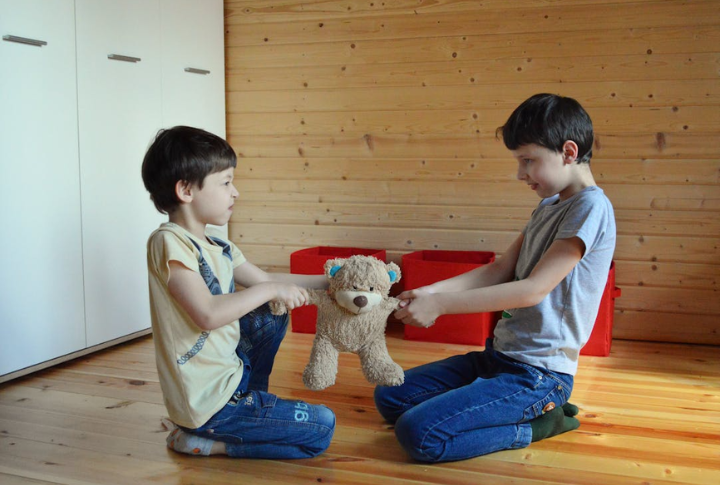Health
20 Behavioral Signs Linked To Sociopaths And Psychopaths

Dangerous personalities don’t always stand out right away. For example, sociopaths and psychopaths mostly do not blend in, but subtle patterns in how they talk or react can reveal a darker personality underneath. Recognizing these red flags early can protect your peace of mind. Below are 20 behavioral signs to watch for, each backed by psychological insight.
Chronic Lying Without Remorse

Even when there’s nothing to gain, sociopaths lie compulsively. The lies distort trivial facts just to assert dominance. They use falsehoods to manipulate perception or control outcomes. When caught, they show no guilt. Deception becomes a patterned behavior, not a defensive one, but a calculated means of managing social power.
Lack Of Empathy For Others

Psychopaths often lack emotional empathy, meaning they can see someone in pain and feel nothing. Brain scans show reduced activity in the amygdala, the region tied to emotional response. Though they may imitate concern convincingly, it’s an act used more to manipulate than to genuinely connect with others’ suffering.
Unusual Calmness During Crisis

When most people panic, psychopaths remain unsettlingly composed. This reaction is tied to a low fear response and reduced cortisol levels. In emergencies, their flat affect can appear rational, but it stems from emotional detachment, not resilience. Victims and responders alike are disturbed by the unnaturally calm behavior displayed.
Blame-Shifting To Avoid Responsibility

They rarely accept fault, even when wrong. Instead, accusations are turned on the victim. This behavior is tied to low remorse levels. Gaslighting becomes a method of control, warping reality to avoid accountability while undermining others’ confidence in their memory or perception of events.
Thrill-Seeking And Risky Behavior

They chase stimulation at any cost. Risky choices—like violence or theft are common and driven by high dopamine needs. Routine feels intolerable. This constant craving for chaos is mistaken for boldness, but underneath is a dangerous restlessness and disregard for safety, both theirs and everyone else’s.
Inability To Maintain Long-Term Relationships

The relationships of sociopaths or psychopaths lack emotional depth and feel transactional, not connected. Instead of trust or care, there’s control. Breakups can be abrupt and harsh, leaving partners or friends feeling used or cast aside. For them, the goal was never real companionship—just power over another person.
Early Cruelty Toward Animals Or Peers

Childhood cruelty, mostly seen as a form of control rather than malice, is a key predictor of adult psychopathy. It’s part of the “Macdonald triad” warning signs and may involve harming animals for entertainment or dominance, indicating deep-rooted behavioral and psychological disturbances early on.
Disregard For Rules And Social Norms

In most cases, rule-breaking begins early, with acts of vandalism or persistent defiance signaling more than mere rebellion. Laws and social boundaries aren’t seen as responsibilities but as obstacles to be ignored. Arrests and reprimands carry little weight, and over time, the behavior doesn’t fade; it becomes more calculated and deliberate.
Glorification Of Violence Or Power Fantasies

Sociopaths may admire violent figures or express fascination with war, revenge, and control. Dark, degrading humor is commonly used to belittle others rather than connect. These fixations reflect emotional detachment and a mindset shaped by superiority, not empathy.
Habitual Creation Of Deceptive Narratives

As truth becomes optional, false stories move seamlessly from one audience to another, their contradictions casually dismissed. Carefully crafted narratives replace reality, not to reflect what happened but to evoke sympathy, admiration, or control. This manipulation begins early, and with time, it solidifies into a habit.
Mirroring Personalities To Build False Rapport

They study others and reflect traits back like a mirror. Shared interests, matching mannerisms, and emotional syncing happen fast, but it’s calculated. This creates quick intimacy and trust, only to be used later as leverage. The real personality stays hidden beneath the performance built to win control.
Deliberate Isolation Of Others In Close Relationships

They don’t demand isolation—they suggest it. “They don’t understand us” or “They’re toxic” becomes the script. Loved ones vanish from the picture, not by force but by influence. Once the partner is cut off, manipulation grows unchecked, with no outside voice to challenge it.
Pathological Jealousy And Possessiveness

Love is confused with ownership. Minor suspicions escalate quickly, sometimes turning into stalking or control. Jealousy is also rebranded as loyalty in their dictionary. What begins as attention soon transforms into obsession, and when rejection—real or imagined enters the picture, the emotional volatility can rise to dangerous levels.
Using Others For Personal Gain

Relationships serve a purpose rather than a connection. Sociopaths may use charm to gain money or influence. Once the benefit ends, so does the relationship. The switch is sudden and unapologetic. People become tools, discarded without explanation once their usefulness has been exhausted.
Failure To Learn From Punishment

Consequences rarely change behavior. Sociopaths may face legal trouble, lose relationships, or get reprimanded, but the same actions continue. This failure to learn is linked to low emotional accountability. Instead of reflecting or adjusting, they double down, seeing punishment as an inconvenience rather than a reason to change.
Disregard For Future Consequences

Planning for the future isn’t a priority. Decisions are often made on impulse, without thinking about the long-term impact. This can lead to problems at work, in school, or with relationships. What may seem like carefree living is a way to avoid responsibility, and the damage adds up.
Enjoyment In Others’ Misfortune

Laughter at tragedy is more than a bad joke and a warning sign. A strong sense of schadenfreude sets sociopaths apart. Early signs may include bullying or cruelty to animals, which, over time, shifts from aggression to amusement. In severe cases, pain becomes entertaining, and sadism takes root.
Sudden Rage Over Minor Offenses

Small disagreements can spark explosive reactions. What seems like an overreaction is a power move. These outbursts are unpredictable and intense, designed to intimidate or silence. Later, the blame is pushed onto others. The pattern leaves people walking on eggshells, fearing the next unexpected blow-up.
Hostile Reactions To Boundaries

To someone fixated on control, boundaries feel like defiance. A firm “no” can lead to outbursts or emotional retaliation. They keep testing limits, hoping others will stop resisting. Eventually, silence replaces pushback. It’s never about respect—it’s about getting their way, no matter how others feel.
Lack Of Long-Term Goals Or Planning

Sociopaths speak in big visions, but long-term plans rarely exist beyond the surface. Careers collapse, money disappears, and structure is absent. They rebrand recklessness as spontaneity, but there’s no real drive for consistency. The future means little when impulse and control take center stage.

